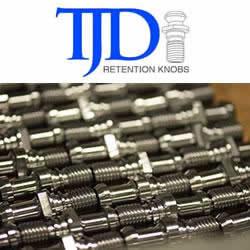Sinclair, AFIT Partnership Expands Capabilities in UAS and Cyber Technologies
A new partnership between Sinclair College and the Air Force Institute of Technology (AFIT) will create new opportunities in unmanned aerial systems (UAS) and cyber security training and education and additionally support expanded research and development activities for related technologies.
Dayton, OH - A new partnership between Sinclair College and the Air Force Institute of Technology (AFIT) will create new opportunities in unmanned aerial systems (UAS) and cyber security training and education and additionally support expanded research and development activities for related technologies.
The partnership enables both institutions to leverage existing resources and expand capabilities and services. Efforts will include exploration of opportunities for new training curriculum in both UAS and cyber technologies, simulation enhanced training, and collaborative research including sensor test flights on Sinclairs unmanned aircraft.
"The system of partnership Sinclair has been developing with leading industry, academic, and government organizations is an instrumental part of our success in advancing UAS and cyber training and technology in the region," said Deb Norris, Vice President of Sinclair Workforce Development. "We are very pleased to be entering into this partnership with AFIT, and look forward to working with them to advance these rapidly expanding fields."
The partnership seeks to make use of recent expansions to the capabilities of Sinclairs UAS and cyber programs.
In May, Sinclair was granted a Section 333 Exemption from the Federal Aviation Administration (FAA), paving the way for broad educational and commercial UAS operations. The college is also expanding the National UAS Training and Certification Center located on its Dayton campus, adding state-of-the-art learning spaces, a wind tunnel, and engine testing and avionics labs, in addition to a new 3,200 square foot UAS Indoor Flying Pavilion for testing prototypes, flight training and more.
Sinclair also recently opened a Corporate College at Austin Landing in Miami Township designed to support training and partnerships focused on applied cyber security and data analytics. The new facility houses multiple labs, each providing the necessary resources for training on a wide range of topics related to cyber security.
The mission of AFIT is to advance air, space, and cyberspace power for our armed forces, the Nation, and its partners by providing relevant defense-focused technical graduate and continuing education, research, and consultation. AFIT accomplishes this mission through three resident schools: the Graduate School of Engineering and Management, the School of Systems and Logistics, and The Civil Engineer School. AFIT also manages all Air Force health, line, legal, and chaplain graduate education at civilian institutions.
Offering consulting, custom programs, courses and certificate programs in leadership, professional development, emerging technologies, advanced manufacturing and more, Sinclair Workforce Development adapts to meet the growing needs of the regions employers in a rapidly changing market. For more information on upcoming Workforce Development offerings, visit workforce.sinclair.edu, or call 937-252-9787.
Featured Product

